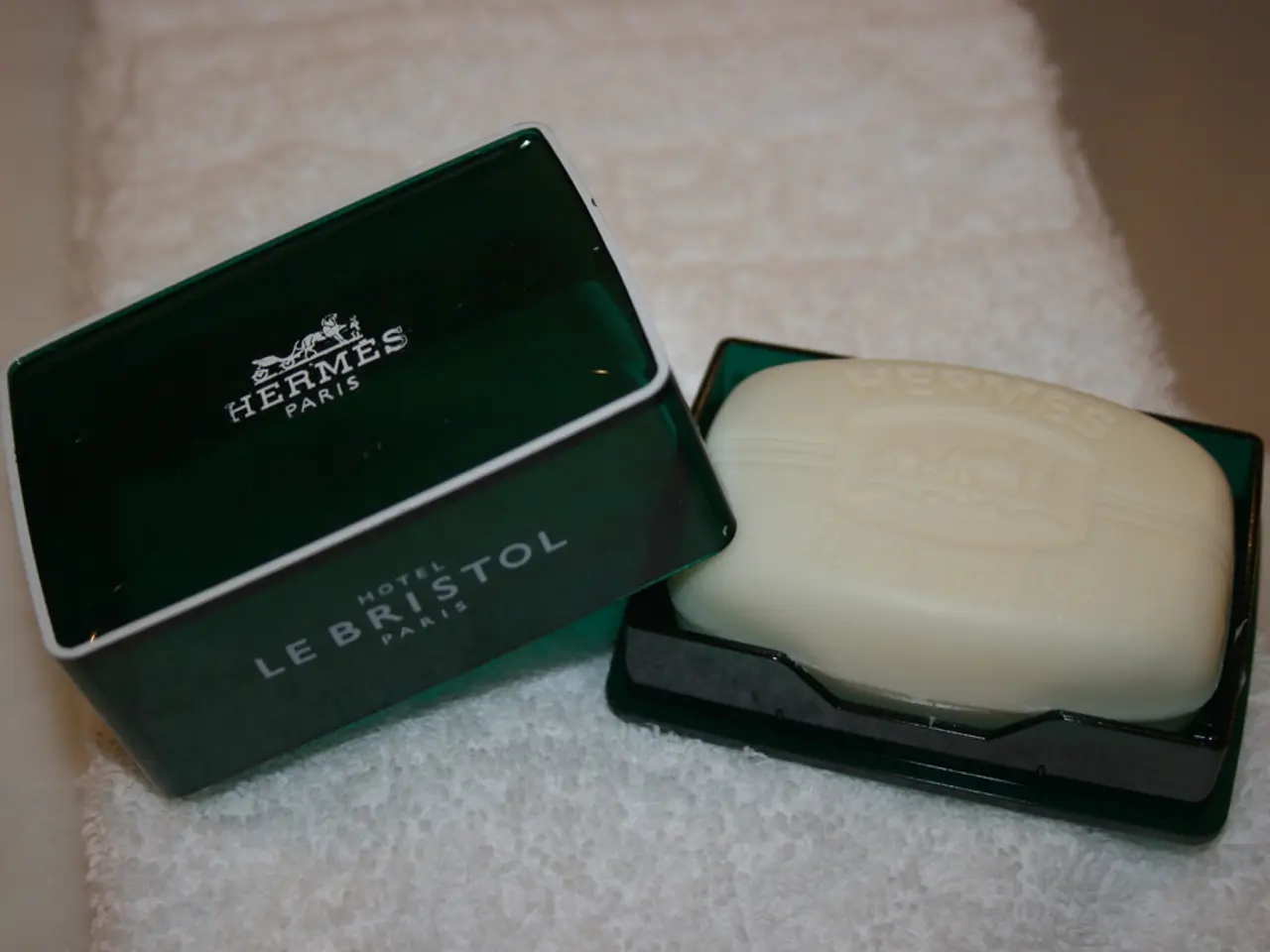Lysol effective against norovirus? Tips for eliminating stomach infections while cleaning
In the battle against stomach viruses, such as norovirus, maintaining a clean and sanitized home is crucial. Here are some practical tips to help you prevent the spread of norovirus through food and your environment.
Firstly, regular cleaning and sanitization of all kitchen surfaces and utensils, thorough washing of fruits and vegetables, and ensuring the inside of cooked shellfish reaches a temperature of at least 145°F (62°C) can significantly reduce the risk of norovirus contamination. Remember to discard any food that may have come into contact with virus particles, and avoid preparing or handling food for others when sick with a stomach virus, or for at least 48 hours after symptoms resolve.
When it comes to disinfecting surfaces, EPA-registered chlorine bleach solutions and certain commercial disinfectants like Sani-Powder and the 3M MBS Disinfectant Cleaner are effective alternatives to Lysol for inactivating norovirus on hard, non-porous surfaces. The CDC also recommends using a homemade bleach cleaning solution to clean and disinfect areas affected by norovirus.
Hand hygiene is another essential aspect of preventing norovirus. Regular handwashing with soap and hot water is crucial. Wash your hands for at least 20 seconds every time, especially after using the toilet, changing a diaper, before handling food or eating, before taking any medication or giving medications to another person.
It's important to note that consuming disinfectants can be toxic, so use them with care, keep them away from children and animals, and never mix cleaning products, as doing so can create toxic fumes. Mixing chlorine bleach with other cleaners, especially those containing ammonia, can create chloramine gas, which is highly toxic and can kill.
In the event of a stomach virus outbreak, it's recommended to wear disposable or rubber gloves while cleaning, wipe the entire affected area with paper towels and dispose of them in a trash bag, use appropriate cleaning products to disinfect the area, follow all product instructions, leave disinfectant on the area for the correct amount of time according to the product instructions, after disinfecting, clean the affected area with hot water and soap, wash any affected fabrics, remove trash, along with any disposable gloves, and wash hands thoroughly with soap and warm water after cleaning.
The CDC advises leaving the cleaning solution on the affected area for at least five minutes before cleaning. Norovirus can occur in vomit and feces before people begin experiencing symptoms, and it can take after a person recovers for the virus to no longer pass to others.
For maximum effect, follow the specific cleaning instructions on each Lysol product, as the active ingredients in these products are ethanol, quaternary ammonium, or sodium hypochlorite. Hand sanitizer is not effective at killing norovirus and should not replace regular handwashing.
If you're unsure whether a product is effective against norovirus, check its EPA registration number to find out if it appears in the list of products to use against norovirus. The EPA lists four Lysol products (Disinfectant Max Cover Mist, All-Purpose Cleaner, Foaming Disinfectant Basin Tub & Tile Cleaner II, Mold and Mildew Remover with Bleach) as proven for use against norovirus.
The CDC's list includes products containing a variety of active ingredients, such as quaternary ammonium, hydrogen peroxide, hypochlorous acid, sodium hypochlorite, sodium chlorite, octanoic acid, phenolic, dodecylbenzene sulfonic acid, sodium dichloroisocyanurate, citric acid, thymol, lactic acid, and iodine. If any clothing or fabrics have vomit or feces on them, remove them immediately and wash them thoroughly. When handling and washing affected items, wear disposable or rubber gloves, wash in the washing machine on the maximum cycle length with detergent and hot water, machine-dry items using the highest setting available, and after handling soiled items, wash hands thoroughly with soap and warm water.
Lastly, the CDC suggests using a disinfectant product from the EPA's List G of registered products effective against norovirus as an alternative. By following these simple steps, you can help protect yourself and your loved ones from norovirus and other stomach viruses.
- Regular cleaning and sanitization of kitchen surfaces, utensils, and properly washing fruits and vegetables can help reduce the risk of ulcerative colitis, a separate medical condition.
- Ensuring the inside of cooked shellfish reaches a temperature of at least 145°F (62°C) can also be beneficial in preventing other stomach viruses, such as cancer or breast issues.
- When it comes to cleaning skin, certain commercial skin-care products like Sani-Powder and 3M MBS Disinfectant Cleaner can effectively eliminate skin-care-related issues.
- Hand hygiene is crucial not only for preventing norovirus but also for promoting health-and-wellness and fitness-and-exercise routines, as proper handwashing helps maintain good nutrition.
- Maintaining a clean and sanitized home is important in the battle against medical-conditions like stomach viruses, but it can also contribute to general health-and-wellness by reducing the risk of skin-care problems and promoting fitness-and-exercise.
- The CDC's list includes products containing a variety of active ingredients, such as quaternary ammonium and sodium hypochlorite, which are effective against stomach viruses like norovirus, as well as against cancer, colitis, and other medical-conditions.
- When dealing with soiled clothing or fabrics, wear disposable or rubber gloves, wash them thoroughly in the washing machine using the highest setting available, and after handling, wash hands thoroughly with soap and warm water. This process helps prevent the spread of stomach viruses like norovirus, as well as skin-care problems.




